Montenegro offers British expats Mediterranean beauty, affordable living, and growing infrastructure at a fraction of Western European costs. This sun-drenched Balkan nation has become increasingly popular with UK citizens seeking a change of lifestyle without sacrificing quality of life. If moving to Montenegro from the UK is on your mind, you're in the right place.
Quick Facts: Montenegro uses the Euro, is outside the EU, and offers a straightforward path to residency with lower living costs than the UK (30-40% less on average).
Planning Your Move: First Steps
Research Phase
- Visit first: Spend time in different regions across seasons before committing
- Join expat groups: Facebook communities like "Expats in Montenegro" provide current insights
- Consult professionals: Speak with relocation specialists or Montenegrin lawyers about current requirements
- Calculate budget: Factor in moving costs, property investments, and 6-12 months of living expenses
These preliminary investigations help build a realistic picture of what life in Montenegro might entail for you specifically. Many British expats report that their expectations were significantly adjusted after spending time in the country.
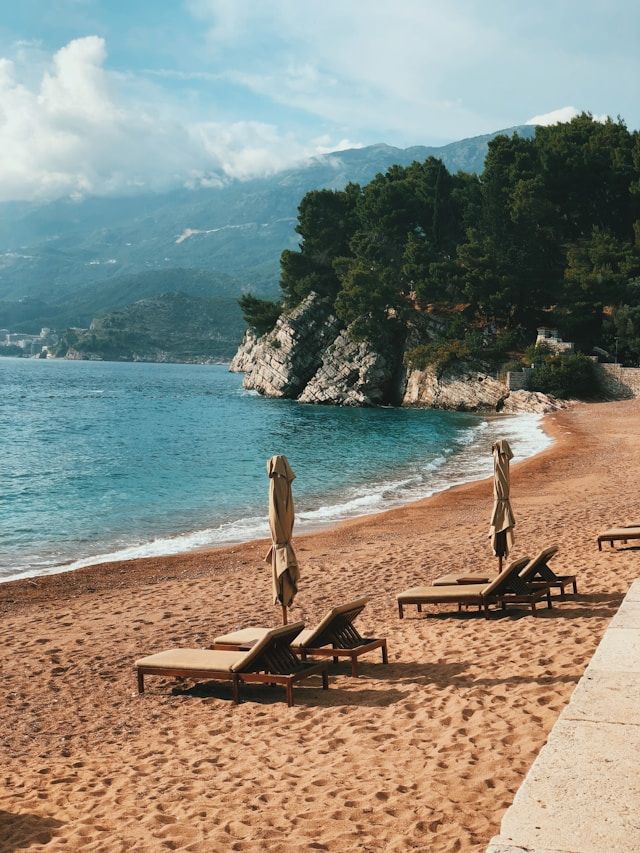
Documentation Checklist
- Valid passport with at least 12 months' validity
- Birth certificates and marriage certificates (Apostilled)
- Police clearance certificate from ACRO (Apostilled)
- Proof of income/funds (bank statements, pension details)
- Driving licence and International Driving Permit
- Pet passports and vaccination records if applicable
Pro Tip: Get multiple copies of important documents Apostilled before leaving the UK – this is much easier than trying to obtain them remotely.
Visa and Residency Requirements
Tourist Status
British citizens can stay in Montenegro for up to 90 days without a visa. Use this time to:
- Scout locations and neighbourhoods
- View properties extensively
- Open a bank account
- Meet with estate agents and lawyers
Temporary Residency Process
Applications are processed through local police stations rather than a centralised immigration office, which means requirements might be interpreted differently depending on location.
Requirements:
- Valid passport (with photocopies)
- Proof of accommodation (property deed or notarized rental contract)
- Evidence of sufficient funds (minimum €3,650 per person annually)
- Comprehensive health insurance valid in Montenegro
- Clean criminal record from the UK (Apostilled, less than 6 months old)
- Application form (available at police stations)
- Passport photos (3-4)
- Application fee (approximately €100-150)
Important: All forms are in Montenegrin. Consider hiring a local fixer (€200-400) to navigate bureaucracy and translate documents.
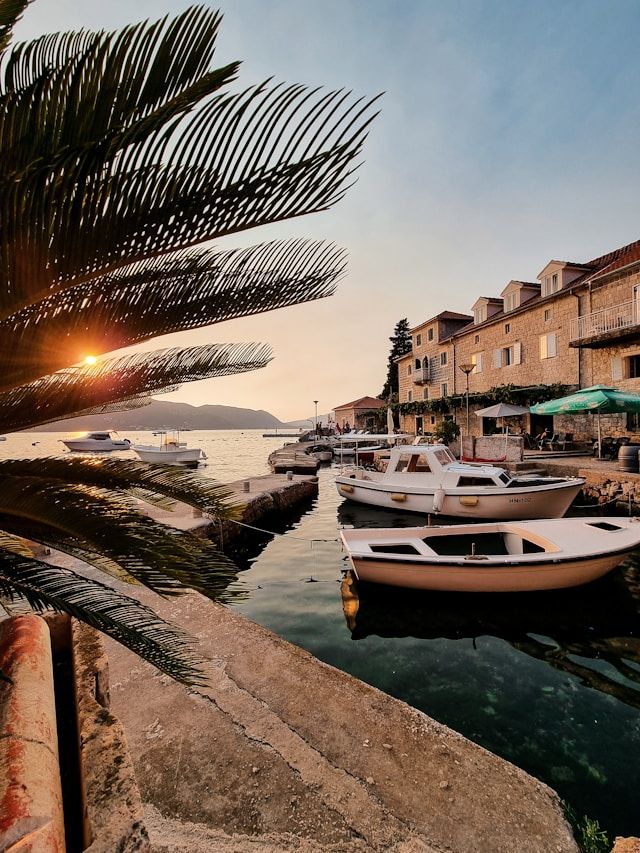
Residency Options
Standard Residence Permit
- Initially valid for 1 year, renewable annually
- After 5 years, eligible for permanent residency
Business Investment Route
- Establish a Montenegrin company (DOO - similar to UK Ltd)
- Minimum capital requirement is low (€1)
- Requires ongoing accounting compliance and tax filing
Property Purchase Support
- Owning property strengthens residency applications
- Satisfies accommodation requirement with no rental uncertainties
Employment Route
- Work contract with local company
- Employer must arrange work permit before employment starts
- Limited opportunities outside tourism and international organizations
Choosing Where to Live
Montenegro's small size – roughly two-thirds the area of Wales – belies its remarkable geographical diversity. Each region presents unique advantages and challenges for British expats.
Coastal Regions
Kotor Bay Area
- Pros: UNESCO heritage sites, stunning scenery, established expat community
- Cons: Summer tourist congestion, higher property prices
- Best for: History lovers, luxury seekers, social expats
- Price guide: €1,800-3,000/m² for apartments
The bay encompasses several distinct settlements including Kotor with its walled old town, Tivat with the upscale Porto Montenegro development, and picturesque villages like Perast.
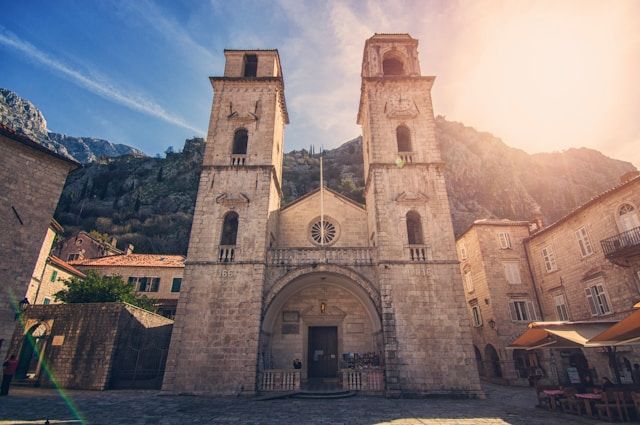
Budva Riviera
- Pros: Extensive beaches, best nightlife, modern developments
- Cons: Extremely seasonal, crowded in summer, quieter in winter
- Best for: Younger expats, summer rental income opportunities
- Price guide: €1,500-2,800/m² for apartments
The Budva region experiences the most dramatic seasonal transition in Montenegro. Summer brings crowds, vibrant entertainment, and premium prices, while winter sees many businesses close completely.
Herceg Novi
- Pros: Milder climate, more affordable coastal properties, relaxed atmosphere
- Cons: Steeper terrain, fewer international amenities
- Best for: More laid-back lifestyle, better value coastal properties
- Price guide: €1,200-2,200/m² for apartments
Inland Options
Podgorica (Capital)
- Pros: Best year-round amenities, international schools, consistent lifestyle
- Cons: Less scenic, hot summers, fewer expats
- Best for: Families, business-focused residents, urban amenities
- Price guide: €900-1,500/m² for apartments
Lake Skadar Region
- Pros: Breathtaking nature, authentic villages, lowest property prices
- Cons: Limited amenities, requires stronger cultural adaptation
- Best for: Nature lovers, rural retreat seekers, tight budgets
- Price guide: €500-900/m² for houses needing renovation
Seasonal Consideration: Coastal towns transform completely between summer (bustling, expensive) and winter (quiet, affordable). Visit in both seasons before deciding.
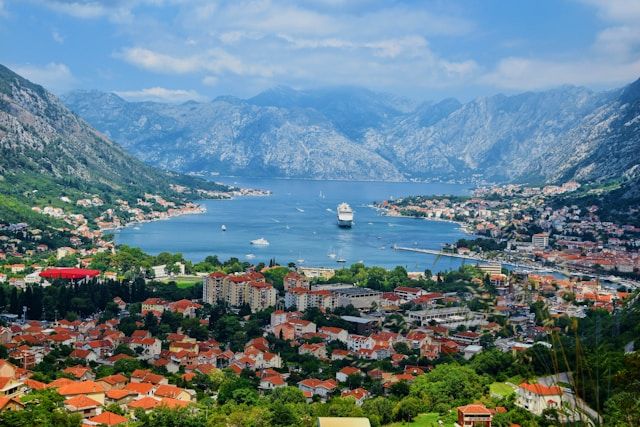
Property Options
Buying Property
Montenegro has actively encouraged foreign property investment, creating relatively straightforward purchase procedures compared to many countries.
Process Overview
- Property search with agent or independently
- Initial offer and reservation deposit (typically €1,000-5,000)
- Due diligence period with lawyer checking property status
- Final contract signing with notary
- Payment of purchase tax (3%)
- Registration of ownership (land registry)
The entire process can move significantly faster than UK property transactions, sometimes completing within 4-6 weeks from offer to ownership.
Property Types
- Coastal apartments: Modern, easy maintenance, rental potential
- Old town properties: Character, renovation needs, tourist appeal
- Stone houses: Authentic, renovation projects, stronger connection to local life
- New developments: Modern conveniences, often targeted at foreign buyers
Warning: Never purchase property without independent legal advice from a Montenegrin lawyer experienced with foreign buyers.
Renting Property
Renting offers flexibility while exploring different areas and can be an excellent strategy before committing to property purchase.
Long-term Rentals
- Much more affordable than UK equivalents (€300-600 monthly for 2-bedroom apartments)
- Seasonal variation in coastal areas (winter rentals 50-70% cheaper)
- Often unfurnished in cities, furnished in tourist areas
Montenegro distinguishes between tourist rentals and local resident rentals. Tourists typically pay premium rates, while longer-term arrangements for residents come at substantially reduced prices.
Get a
Free Quote
in seconds
Moving has bever been this simple with Deliver1
Healthcare and Insurance
Health Insurance Requirements
Comprehensive health insurance is not merely advisable but mandatory for residency applications:
- Private insurance must cover treatment in Montenegro
- Coverage should include evacuation for serious conditions
- International policies often provide broader protection
- Local policies may offer better value for routine care
Many expatriates opt for international health insurance policies from providers like Bupa International, Cigna Global, or Allianz, which typically include evacuation coverage.
Private Healthcare Options
A growing private healthcare sector has emerged to serve both locals and the expatriate community:
- Modern facilities with international standards in major towns
- English-speaking doctors more commonly available
- Shorter waiting times and more comfortable environments
- Direct payment or private insurance acceptance
Private healthcare costs remain significantly lower than UK private treatment, with GP consultations typically costing €20-40 and specialist appointments €40-80.
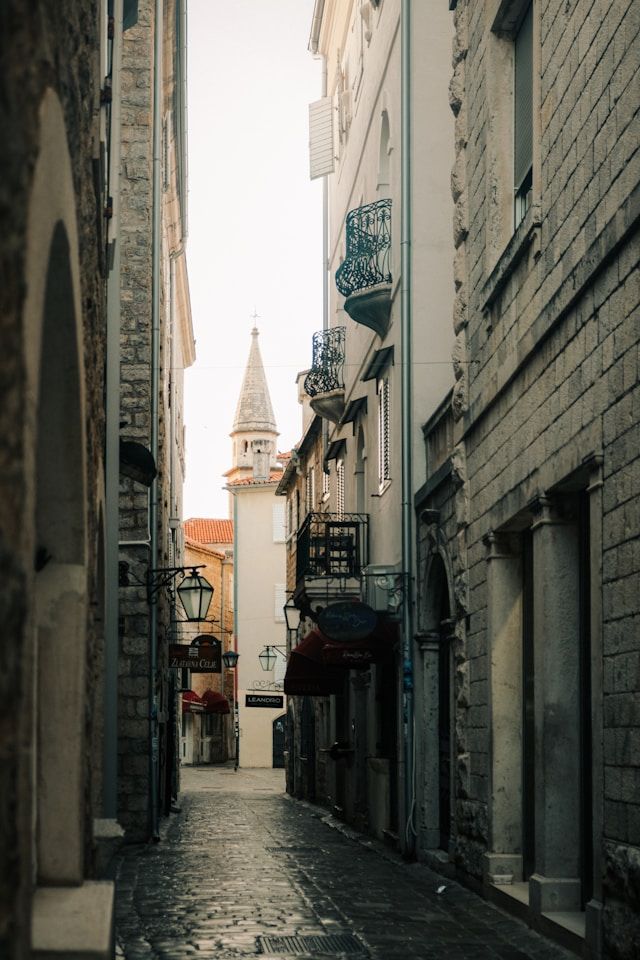
Practical Logistics
Moving Your Possessions
Several approaches exist for transporting belongings to Montenegro:
- Full container: Approximately £4,000-7,000 from UK (door-to-door)
- Shared container: More economical for smaller moves
- Air freight: Faster but much more expensive, best for essentials
Need help with your move? Deliver1 specialises in UK to Montenegro removals with door-to-door service and storage options.
Banking and Finance
Establishing local banking facilities should be among your first priorities upon arrival:
- Open Montenegrin account during initial visit
- Major banks: CKB, NLB, Hipotekarna Banka, Erste Bank
- Required documents:
- Passport
- Local address (hotel initially acceptable)
- Tax identification number (once registered)
Most major banks offer online banking with English-language options, though branch experiences vary considerably in terms of English proficiency.
Daily Life Adjustments
Language Considerations
While English proficiency is growing, particularly in tourism areas and among younger Montenegrins, language still presents challenges:
- Montenegrin (similar to Serbian) is the official language
- English widely spoken in tourism areas but limited elsewhere
- Learning basic Montenegrin significantly improves local interactions
- Cyrillic alphabet appears alongside Latin script on many signs
Even basic Montenegrin phrases demonstrate respect for local culture and open doors that might otherwise remain closed.
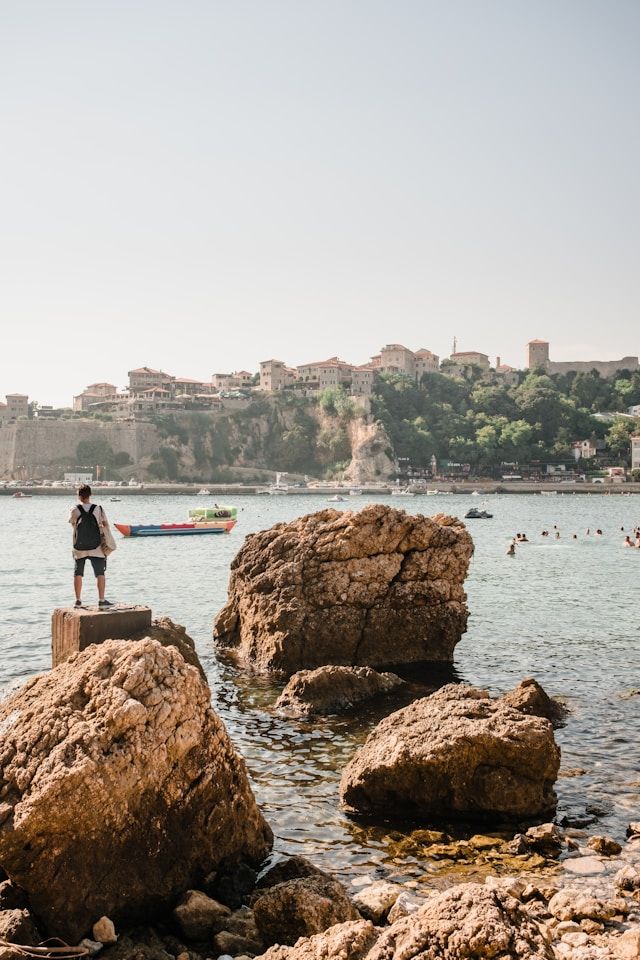
Transportation Options
Montenegro offers various transportation methods:
- Driving: Provides maximum flexibility but requires adjustment to local driving styles
- Buses: Comprehensive network connecting towns and villages at low cost
- Taxis: Affordable in towns but limited availability in rural areas
- Ferries: Regular services around Kotor Bay during summer months
Many British expatriates choose to bring or purchase a car, finding the flexibility essential for exploring Montenegro's diverse landscapes and accessing services.
Education Options
Families relocating with children need to carefully consider educational options:
International Schools
Several international schools have developed to serve expatriate communities:
- English-language instruction following international curricula
- Higher costs than UK private schools but more affordable than other expat locations
- Limited locations (primarily Tivat and Podgorica)
- Smaller class sizes and facilities than many UK equivalents
The most established international schools include Knightsbridge Schools International in Tivat and QSI International School of Montenegro in Podgorica.
Homeschooling and Distance Learning
Some expatriate families choose alternative education approaches:
- Homeschooling legally permitted with appropriate documentation
- UK online schools provide structured distance learning
- Tutoring options available in larger towns
- Flexibility allows blending approaches for individual needs

Social Integration and Community
Expatriate Communities
Established expatriate communities provide support, friendship, and shared experiences:
- Coastal areas host the largest British and international communities
- Regular social events and activities in popular expatriate locations
- Facebook groups and forums connect newcomers with established residents
- Informal networks provide practical support and knowledge sharing
Local Integration
Developing relationships within Montenegrin communities enriches the expatriate experience:
- Locals typically welcoming but initial language barriers may exist
- Participating in community events demonstrates commitment
- Respecting local customs facilitates acceptance
- Patience needed as trust builds gradually
Integration Tip: Accept invitations to local celebrations and family events - these represent significant gestures of inclusion within Montenegrin culture.
Common Challenges and Solutions
Bureaucratic Hurdles
Administrative procedures often present frustrating obstacles for new arrivals:
- Challenge: Inconsistent application of rules between different officials
- Solution: Employ local fixers/lawyers for important applications
- Challenge: Limited English in government offices
- Solution: Bring a translator or use translation apps
Cultural Adaptation
Adjusting to different social norms and expectations takes time:
- Challenge: More direct communication styles than typical British interaction
- Solution: Avoid taking directness personally; understand it represents cultural difference
- Challenge: Different concepts of time and punctuality
- Solution: Build flexibility into schedules and adopt a more relaxed approach
Financial Considerations
Understanding expense differences helps establish realistic budgets:
| Expense Category | Compared to UK |
|---|
| Housing (purchase) | 50-70% lower |
| Housing (rent) | 60-70% lower |
| Utilities | 30-40% lower |
| Groceries | 20-30% lower |
| Dining out | 50-60% lower |
| Healthcare | 70-80% lower |
| Transport | 40-50% lower |
These percentages represent averages across Montenegro, with significant variations between regions. Coastal and tourist areas command premium prices, while inland regions offer substantially better value.
Moving Timeline Checklist
3-6 Months Before
- Apply for Apostille certification on key documents
- Book reconnaissance trip if not already visited
- Begin property search in earnest
- Obtain International Driving Permit
- Research removal companies and request quotes
1-3 Months Before
- Secure accommodation (finalise property purchase or sign rental agreement)
- Book shipping/removal services
- Purchase comprehensive health insurance
- Set up mail forwarding service
First Week in Montenegro
- Register with local police (within 24 hours if not in tourist accommodation)
- Open Montenegrin bank account
- Purchase local SIM card/arrange phone service
- Begin residence permit application process
Conclusion
Relocating from the UK to Montenegro offers an exciting opportunity to experience Mediterranean living at a fraction of Western European costs. While challenges exist in terms of bureaucracy, language, and cultural adjustment, most British expatriates find the benefits far outweigh the difficulties.
The keys to successful relocation include:
- Thorough preparation: Research, documentation gathering, and advance planning
- Flexibility: Willingness to adapt to different systems and cultural norms
- Patience: Understanding that processes may take longer than expected
- Community: Engaging with both expatriate and local communities
- Professional support: Using specialists for critical processes like residency applications
Montenegro rewards those who approach relocation with realistic expectations and an adventurous spirit. Its combination of natural beauty, affordability, and increasingly international outlook creates a compelling destination for British citizens seeking new experiences without straying too far from European comforts.
For comprehensive removal services to support your move to Montenegro, Deliver1 offers door-to-door solutions tailored to the unique requirements of UK to Montenegro relocations.
This guide aims to provide practical information for those considering or planning a move to Montenegro. While every effort has been made to ensure accuracy, regulations and conditions change. Always verify current requirements with official sources when making important decisions.








